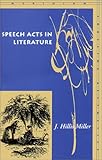Jewish American Literature: A Norton Anthology Reviews
Jewish American Literature: A Norton Anthology

From the early settlers to Broadway lyricists to today's great writers--a redefinition of a vital American literary tradition. This rich anthology reconsiders Jewish American literature from its seventeenth-century origins to its flourishing present. It gathers the work of 145 writers in all genres--fiction, poetry, drama, essays, journals, autobiography, song lyrics, and cartoons. Here readers will find the petitions and memoirs of the first Sephardic settlers, the Yiddish and English voices of the great era of immigration, modernist writers exploring their Americanness, and activist writers working for change. Here too is the generation of writers and poets who define postwar American literature--Arthur Miller, Tillie Olsen, Bernard Malamud, Allen Ginsberg, Cynthia Ozick, Philip Roth--and a younger generation--Art Spiegelman, Jacqueline Osherow, Melvin Jules Bukiet, Allegra Goodman--whose work makes clear that Jewish American literature continues to thrive. This collection shows as never before how literature has played a vital role in shaping and passing down the legacies of "the people of the book."Jewish American Literature: A Norton Anthology is a comprehensive collection of Jewish American writings, from colonial times to the present. The book is organized chronologically, with thematic sections on Jewish humor, the Broadway song, and the art of translation. Editors Jules Chametzky, John Felstiner, Hilene Flanzbaum, and Kathryn Hellerstein provide enlightening introductions for each section, helping readers to discern the lines of development through the various contributions, whose genres range from autobiography to sermons to songs and jokes, by writers as diverse as Irving Berlin, Emma Lazarus, Allegra Goodman, and Woody Allen. Among the many fascinating strains to follow in this collection is the changing yet abiding role of Scripture as a source of inspiration for American Jewish writers. "It may be that in the past, Jewish civilizations survived by cleaving to the righteousness and difference inscribed in sacred texts," notes the book's general introduction. "Some would hold that this spiritual tenacity is still necessary and sufficient. Possibly so. But with it come wit and self-deprecation, moral dilemma, verbal ingenuity, aspiration, tragedy, and joy, families aplenty, nostalgia, satire--a full slice of human life at its most vocal." --Michael Joseph Gross

Price: $ 32.61
Speech Acts in Literature

This book demonstrates the presence of literature within speech act theory and the utility of speech act theory in reading literary works. Though the founding text of speech act theory, J. L. Austin’s How to Do Things with Words, repeatedly expels literature from the domain of felicitous speech acts, literature is an indispensable presence within Austin’s book. It contains many literary references but also uses as essential tools literary devices of its own: imaginary stories that serve as examples and imaginary dialogues that forestall potential objections. How to Do Things with Words is not the triumphant establishment of a fully elaborated theory of speech acts, but the story of a failure to do that, the story of what Austin calls a “bogging down.â€
After an introductory chapter that explores Austin’s book in detail, the two following chapters show how Jacques Derrida and Paul de Man in different ways challenge Austin’s speech act theory generally and his expulsion of literature specifically. Derrida shows that literature cannot be expelled from speech actsâ€"rather that what he calls “iterability†means that any speech act may be literature. De Man asserts that speech act theory involves a radical dissociation between the cognitive and positing dimensions of language, what Austin calls language’s “constative†and “performative†aspects. Both Derrida and de Man elaborate new speech act theories that form the basis of new notions of responsible and effective politico-ethical decision and action.
The fourth chapter explores the role of strong emotion in effective speech acts through a discussion of passages in Derrida, Wittgenstein, and Austin. The final chapter demonstrates, through close readings of three passages in Proust, the way speech act theory can be employed in an illuminating way in the accurate reading of literary works.
After an introductory chapter that explores Austin’s book in detail, the two following chapters show how Jacques Derrida and Paul de Man in different ways challenge Austin’s speech act theory generally and his expulsion of literature specifically. Derrida shows that literature cannot be expelled from speech actsâ€"rather that what he calls “iterability†means that any speech act may be literature. De Man asserts that speech act theory involves a radical dissociation between the cognitive and positing dimensions of language, what Austin calls language’s “constative†and “performative†aspects. Both Derrida and de Man elaborate new speech act theories that form the basis of new notions of responsible and effective politico-ethical decision and action.
The fourth chapter explores the role of strong emotion in effective speech acts through a discussion of passages in Derrida, Wittgenstein, and Austin. The final chapter demonstrates, through close readings of three passages in Proust, the way speech act theory can be employed in an illuminating way in the accurate reading of literary works.

List Price: $ 21.95
Price: $ 15.00
No comments:
Post a Comment